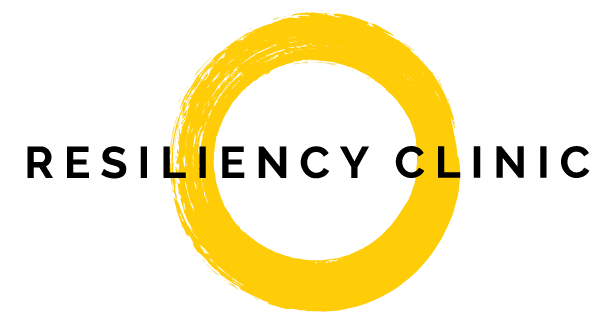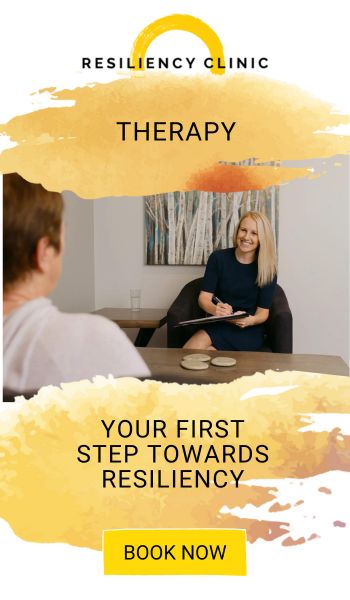Registered Psychotherapist, Hannah Mulligan, shares her insights on supporting Ottawa residents through OCD treatment, and how building resilience can transform the relationship with obsessive thoughts. Specialized OCD therapy is available virtually across Ontario and Quebec, and in person in Ottawa.
As someone providing OCD therapy Ottawa residents rely on, I sit in my office here looking out at the changing seasons, reminded of something I often share with my clients: resilience isn’t about avoiding difficult thoughts—it’s about learning to dance with uncertainty.
If you’re one of the many Ottawa residents quietly struggling with OCD (and yes, there are more of us than you might think), I want you to know something important: the journey from feeling trapped by your thoughts to building genuine resilience is not only possible—it’s happening in OCD therapy sessions across our city every day.
While Obsessive Compulsive Disorder affects 1 in 40 people, it remains one of the most misunderstood conditions I treat in my Ottawa psychology practice. The casual use of “OCD” to describe being organized has created real confusion about what this experience actually involves—and more importantly, how effectively we can work together through specialized OCD counselling to change it.
What I See in My Ottawa OCD Therapy Practice
In my work with Ottawa clients seeking OCD treatment, I’ve noticed that OCD often shows up differently than people expect. It’s not just about hand-washing or checking locks (though those can be part of it).
OCD is an anxiety-based disorder where unwanted, intrusive thoughts create such distress that people develop repetitive behaviors or mental rituals to try to make the anxiety stop. But here’s what I’ve learned through years of providing OCD therapy in Ottawa: the compulsions that feel like solutions actually become the problem.
I’ve worked with government employees who can’t leave their desk without checking their computer 15 times, university students who can’t submit assignments because they’re never “perfect enough,” and parents who avoid taking their kids to playgrounds because of contamination fears. What connects all these experiences in my anxiety therapy practice? An intelligent mind trying to solve the wrong problem.
Recognizing the Signs Of OCD
OCD symptoms tend to fluctuate, often intensifying during periods of high stress or low mood. The key indicators are:
Common Obsessions:
- Fear of contamination (germs, dirt, or perceived harmful substances)
- Worry about causing harm to yourself or others
- Unwanted sexual or violent thoughts
- Excessive concern with morality or “doing the right thing”
- Need for order, symmetry, or perfection
- Persistent doubt or feelings of uncertainty
Common Compulsions:
- Excessive checking (locks, paperwork, appliances)
- Arranging or ordering objects in specific ways
- Repetitive cleaning or washing
- Mental rituals like counting, praying, or repeating phrases
- Seeking constant reassurance from others
- Hoarding items that seem unnecessary to others
The Real Story Behind “Control”
Here’s something I explain to every client: You’re not “out of control”—you’re actually trying to control too much.
When I work with someone experiencing OCD, they often tell me they know their obsessions aren’t rational. But uncertainty feels dangerous, unbearable. So compulsions develop as attempts to create safety and predictability. The cruel irony? These attempts often strengthen the very anxiety they’re meant to solve.
This is where resilience comes in. True resilience isn’t about eliminating uncertainty—it’s about building your capacity to be okay with not knowing.
How We Build Resilience Together
The most effective OCD treatment approach I use combines Thérapie cognitivo-comportementale (TCC) with Prévention de l'exposition et de la réaction (ERP)—both evidence-based therapies proven effective for OCD counselling. But here’s what makes it work in my Ottawa therapy practice: we’re not just managing symptoms—we’re building psychological flexibility.
In our OCD therapy sessions, we’ll:
- Connect the dots: Understanding how your brilliant mind got stuck in these patterns
- Start small: Building confidence through manageable challenges (yes, even winter in Ottawa has its therapeutic advantages—we have plenty of indoor spaces to practice!)
- Develop your “uncertainty muscle”: Learning to tolerate not knowing without needing to fix it through OCD counselling techniques
- Create your personal resilience toolkit: Strategies that work specifically for your life in Ottawa
I’ve seen government workers learn to leave meetings without triple-checking their notes. I’ve watched students submit “good enough” papers and discover the world didn’t end. I’ve celebrated with parents who took their kids to Confederation Park without spending an hour sanitizing afterward.
This isn’t about becoming careless—it’s about becoming free through effective OCD treatment.
You’re Not Alone in Your OCD Journey

OCD can feel incredibly isolating—especially in a city where everyone seems to have their life together. But I want you to know: some of the most resilient, insightful people I’ve met have been my OCD clients. Your mind’s desire to protect and control comes from a good place. We just need to redirect that energy through specialized anxiety therapy.
I’m Hannah Mulligan, and I specialize in helping Ottawa residents build resilience beyond anxiety-based conditions like OCD through evidence-based OCD therapy and counselling. I provide compassionate OCD treatment in our beautiful space, where you can learn to trust yourself again and rediscover the freedom that’s been waiting for you.
Ready to start your OCD therapy journey in Ottawa? I’d love to meet you for a free 15-minute consultation.
At Resiliency Clinic, we offer free 15-minute consultations to explore whether working together feels like the right fit, and you can ask any questions you have about OCD treatment options. We provide bilingual psychology and psychotherapy services in Ottawa, Ontario, focusing on building resilience and psychological flexibility. Our approach is strength-based, evidence-informed, and designed to help you connect the dots between your experiences and your path forward through specialized mental health therapy. You can learn more about our clinic ici.
If you’re experiencing a mental health crisis, please contact your local emergency services or call the Ottawa Distress Centre at 613-238-3311.
Frequently Asked Questions About OCD Therapy in Ottawa
Q: How do I know if I need OCD therapy in Ottawa? A: If intrusive thoughts are causing significant distress and you’re spending substantial time on repetitive behaviors or mental rituals to manage anxiety, OCD therapy could help. Contact our Ottawa clinic for a free consultation.
Q: What’s the difference between CBT and ERP for OCD treatment? A: CBT helps you understand thought patterns, while ERP gradually exposes you to anxiety triggers without performing compulsions. Both are gold-standard treatments for OCD that I use in my Ottawa practice.
Q: Do you offer virtual OCD therapy across Ontario? A: Yes, we provide secure virtual OCD therapy sessions throughout Ontario and Quebec, plus in-person appointments at our Ottawa clinic. Learn more about teletherapy regulations in Ontario.
Q: Is OCD therapy covered by insurance in Ontario? A: Many extended health plans cover registered psychotherapist services. Our team can help verify your coverage for OCD treatment. For more information about mental health coverage, visit Health Canada’s mental health services guide.






